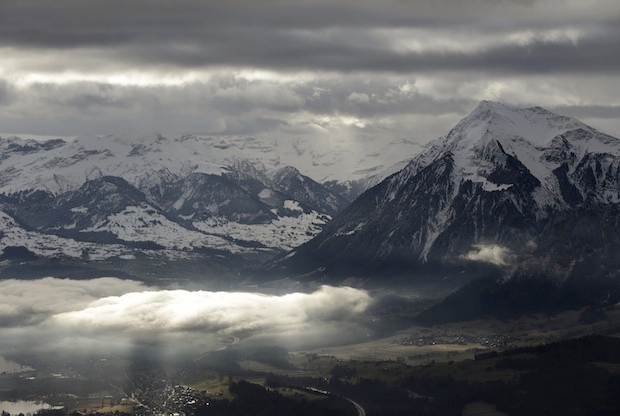Skiing as a pastime is now more accessible than ever but for those seeking a home in the Alps, particularly in Switzerland, the market is far from all-inclusive. Recent rules and regulations setting out who can buy what, and where, means it pays to do your research.
In the 12 years I’ve worked in Knight Frank’s international research team one of the biggest challenges has been keeping abreast of the new policies, taxes, and referenda that buffet the housing markets in the 55-plus countries that we monitor. Nowhere is this more challenging than in Switzerland. The Swiss, it would seem, love a referendum.
In 2012 Switzerland passed a new law – ‘Lex Weber’ – which imposed a 20 per cent cap on the number of second homes within any Swiss commune. This law (the finer detail of which has only recently been published) combined with Lex Koller, a law in force since 1983 which restricts non-resident buyers to certain ‘holiday zones’, means prospective buyers not only need detailed knowledge of the country and its zones but some expert guidance.
Nevertheless, the rewards can be significant. Although foreign buyers in Switzerland are faced with a higher entry cost due to the resilience of the Swiss Franc, the country offers unrivalled levels of privacy and security. Add to this the fact that the authorities have tinkered with the fundamentals of the open market by constraining supply and it suggests values are likely to be supported for the foreseeable future.
Perhaps it’s not surprising then that the Swiss resort of Gstaad came out on top in Knight Frank’s Alpine Property Index which tracks the movement of luxury residential prices in top ski resorts. Prices in the Swiss resort surged 13 per cent in the year to June 2016, driven in part by a lack of quality stock. The weaker performance by some of the other Swiss resorts is because they’re playing catch up when it comes to the delivery of year-round infrastructure and amenities.
What about the French Alps? Buying in France is undeniably more straightforward. However, if you’re looking for a new property it’s worth trying to get to the front of the queue; they face strong demand due to an attractive 20 per cent VAT rebate offered to residents and non-residents alike who agree to rent out their purchase.

To rent or not to rent?
Few buyers purchase a ski home as a high-yielding investment, most aim for a net return of 1.5 per cent to 2 per cent per annum. In agent-speak, a ski home ‘needs to wash its face’ by generating sufficient rental income to either cover its maintenance or to fund the family’s biannual visits.
Location is key. Many buyers purchase in the same resort that they’ve holidayed in over the years, but in doing so they may be overlooking some important considerations.
For skiing aficionados, altitude is everything. Buying above 1,850m (Val d’Isere, Verbier, St Moritz) can lengthen your season by as much as six to eight weeks and during that time you can command high end rents of circa £20,000 per week for a four to five bedroom chalet in the heart of the resort.
But if you’re looking for a dual season or year-round rental property (yes, there is a difference) then you need to be further down the mountain where non-ski activities abound and shorter void periods are on offer.
Dual season, for those who want to be ‘in the know’, provides skiing in the winter and mountain trekking in the summer (Meribel), whilst year-round resorts (Chamonix, Megeve) offer a plethora of non-ski activities such as aqua centres, mountain biking, zip-wires, adventure parks etc enabling wall-to-wall activities in spring and autumn too.
Post-Brexit landscape
The UK’s decision to leave the EU has resulted in some uncertainty but vendors and buyers alike are still making decisions. Buyers are recalibrating, targeting those resorts demonstrating the greatest degree of liquidity. A €2 million chalet in Chamonix for example offers greater rental potential and an easier exit strategy than a €8 million chalet in a less well-serviced resort.
All eyes are on the currency repercussions, from both a property investment and tourism perspective. Only recently, one of Britain’s largest tour operators, told holidaymakers they must pay more for their ski breaks this winter despite having booked up, paid up and successfully located their salopettes from last year. The company has invoked the ‘surcharge clause’ in its terms and conditions which allows travel firms to ask customers for an additional fee due to currency fluctuations or rising fuel costs or taxes.
From a property perspective a weaker euro will strengthen demand from GBP and USD buyers, but heightened political and economic instability may see Switzerland the ultimate winner, regardless of the franc’s strength.
Kate Everett-Allen is Head of International Residential Research at Knight Frank
You can read Kate’s latest international research and ski market analysis here.






Comments